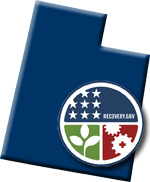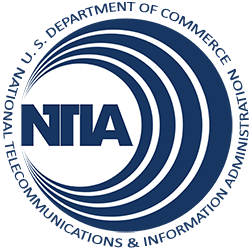Broadband’s ability to expand educational and employment opportunities is especially meaningful for Americans who are deaf or hard of hearing, a community that faces unique challenges in education and that suffers from a rate of unemployment much higher than the national average. Communication Service for the Deaf, Inc. (CSD) intends to expand broadband adoption among people who are deaf and hard of hearing and provide them with online tools to more fully participate in the digital economy. The project proposes to employ a combination of discounted broadband service and specialized computers, technology training from an online state-of-the art support center customized to the community’s needs, public access to videophones at anchor institutions from coast to coast, and a nationwide outreach initiative. Thousands will gain online access to all the Internet has to offer, including sign language interpreters, captioned video services, and other content and functionalities designed especially to advance their educational, employment, and healthcare interests.
Utah

| Grantee | Total Award | Type |
|---|---|---|
| Communication Service for the Deaf, Inc. | $14,988,657 | Sustainable Adoption |
| Navajo Tribal Utility Authority | $32,190,067 | Infrastructure |
| University Corporation for Advanced Internet Development | $62,540,162 | Infrastructure |
| University of Utah | $13,401,096 | Infrastructure |
| Utah Public Service Commission | $5,196,025 | Broadband Data & Development |
| Ute Indian Tribe | $1,418,266 | Infrastructure |
| UTOPIA | $16,229,321 | Infrastructure |
| ZeroDivide | $1,384,242 | Sustainable Adoption |
Navajo National Middle Mile/Last Mile Project proposes to bring high-speed affordable broadband services to the Navajo Nation by deploying 550 miles of new aerial fiber-optic cable and 59 new or modified microwave towers covering 15,000 square miles in Arizona, Utah, and New Mexico. The proposed service area has rugged terrain, significant poverty, and more than 60 percent of residents lack basic telephone service. The project expects to directly connect 49 Chapter Houses, which serve as community centers for the Navajo population, at speeds from 10 Mbps to 10 Gbps. Last mile wireless services will be offered at speeds between 1 and 3 Mbps through the project’s wireless partner, Commnet Wireless.
As part of a longstanding project to connect essential community anchor institutions across the country, and facilitate closer collaboration and long-term benefits for education, research, healthcare, public safety, and government services, the University Corporation for Advanced Internet Development (UCAID) proposes a comprehensive 50-state network benefitting approximately 121,000 community anchors. The project proposes a large-scale, public-private partnership to interconnect more than 30 existing research and education networks, creating a dedicated 100-200 Gbps nationwide fiber backbone with 3.2 terabits per second (TBps) total capacity that would enable advanced networking features such as IPv6 and video multicasting. The project plans to connect community anchors across all disciplines into virtual communities with shared goals and objectives, including colleges, universities, libraries, major veterans and other health care facilities, and public safety entities, with additional benefits to tribes, vulnerable populations, and government entities.
The Utah Anchors: A Community Broadband Project plans to enhance and expand the Utah Education Network (UEN) by deploying fiber-based Ethernet broadband services to 130 anchor institutions across the state, including elementary schools, public libraries, charter schools, and Head Start centers. The project expects to enable these anchor institutions to move from copper-based T1 or slower connections to fiber-based Ethernet broadband connections with speeds of 10 to 100 Mbps. The UEN currently coordinates and supports the telecommunications needs of more than 300 community anchor institutions across Utah.
Project Components
State Broadband Capacity Building:
The funding will enable the Utah Broadband Project to establish one additional staff member to support the existing project staff. It will also support a research survey on broadband demand and usage and local outreach related to increasing broadband adoption.
Data Collection, Integration, and Validation:
This project was originally funded for broadband planning activities and two years of data collection. In September of 2010, this project was amended to extend data collection activities for an additional three years and to identify and implement best practices.
Address File Development:
Utah PSC proposes to develop a crowd sourcing application for address development through a public-private partnership with Blue Stakes of Utah, and will also leverage state-to-county relationships and Utah’s 911 Committee to develop a statewide address file.
Many of the community anchor institutions on the Uintah and Ouray Reservation, home to the Ute Indian Tribe, lack sufficient broadband infrastructure to interconnect the tribal government, the Bureau of Indian Affairs (BIA), and other federal agencies. Many residents in the area, such as the Fort Duchesne Tribal Community, are also severely underserved by current broadband providers.
The Ute Indian Tribe is proposing to install new fiber optic cable to enhance distance learning, telehealth, and public safety applications in the region. The project would also help spur economic opportunities and social services in an area that, according to BIA, has an unemployment rate of up to 77 percent. The network would bring speeds of up to 10 Mbps to police, courts, emergency and social services facilities, and enable rapid information sharing between local, inter-tribal, state, and federal agencies.
The Utah Telecommunications Open Infrastructure Agency (UTOPIA), a collaboration between 16 Utah
municipalities in the Great Salt Lake region of northern Utah, proposes to enhance its existing fiber network to
bring improved broadband services to Perry, Layton, Centerville, West Valley, Murray, Midvale, Orem, and
Payson, with the capacity to expand to the entire region. Government entities in the region, such as the offices
of the Layton Chief of Police and the Mayor of Centerville City, have attested to the need for enhanced services
to facilitate public safety, education and research, and day-to-day government transactions. UTOPIA also
intends to use existing partnerships with the Utah Department of Transportation, the Utah Transit Authority, and
the Utah Education Network to expand the network’s reach to more community anchor institutions, over 175 of
which could benefit from the network.
ZeroDivide’s Generation ZD Digital Literacy Program proposes a major regional training and broadband access program for low-income youth in communities across several Western states that will encourage the development of a new generation of broadband users. The project plans to enhance broadband services and outreach in Humboldt and San Benito counties and San Juan Bautista, California; Salt Lake City, Utah; Maui County, Hawaii; King, Snohomish, Skagit Island and Pierce counties, Washington; Multnomah and Washington counties and Portland, Oregon; and Santa Fe, New Mexico. It will also provide sustainable skills training, skill-sharing, and workforce development programs for the North Coast region of California, including for youth from the Native American Table Bluff Wiyot Tribe, Karuk Tribe, and Hoopa Valley Tribe.
